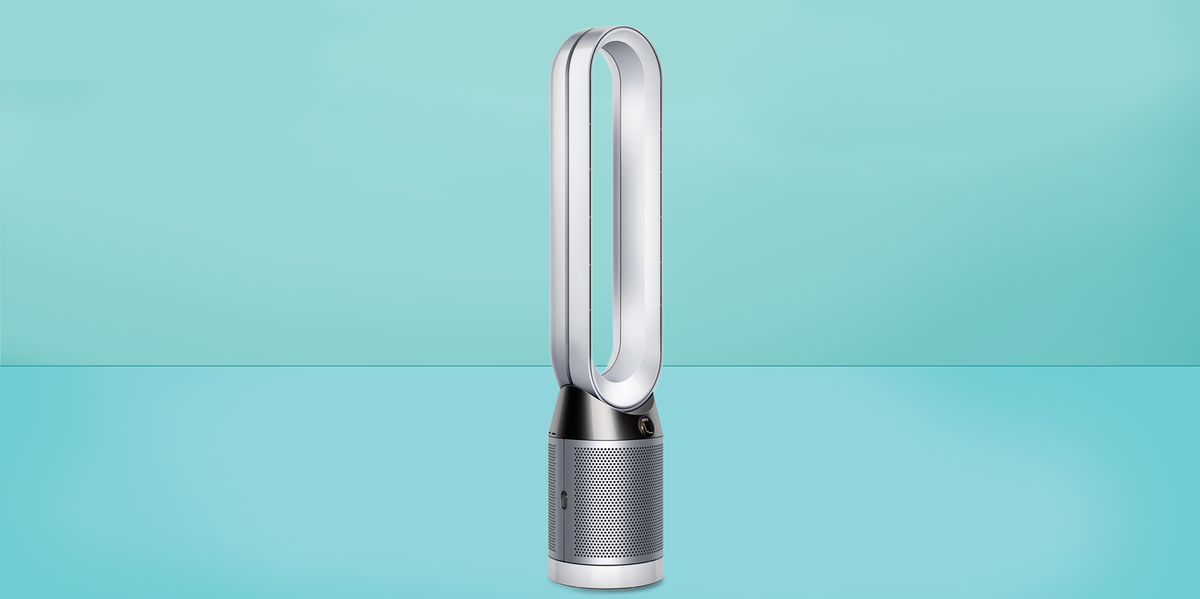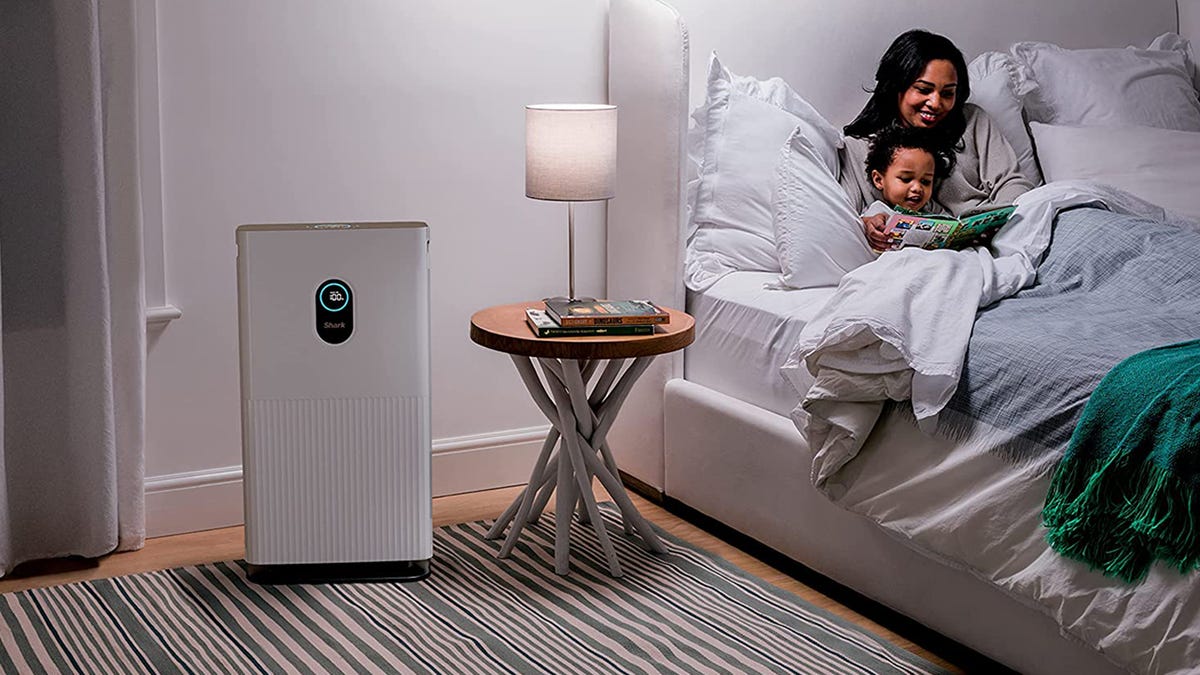Featured
Table of Contents
- – Understanding Allergic Reactions and Triggers
- – Can Air Purifiers Help with Allergies?
- – The Scientific Research Behind Air Purifiers ...
- – Are Air Purifiers Right for You? Elements to ...
- – Taking advantage of Air Purifiers for Allergies
- – Beyond Air Purifiers: A Multi-Pronged Approach...
- – Living a Breath Easier Life with Allergies

For allergic reaction patients, spring blooms and fluffy pets can bring even more sniffles and sneezes than joy. Interior allergens like allergen, pet dog dander, and plant pollen can ruin your breathing system, leaving you feeling unpleasant. Air cleansers are often touted as an option, promising cleaner air and alleviation from allergy symptoms. Are air purifiers really worth the financial investment for allergic reaction sufferers? This extensive guide explores the scientific research behind air purifiers, their effectiveness for allergies, and the variables to take into consideration when choosing.
Understanding Allergic Reactions and Triggers
To understand the role of air cleansers, allow's initial look into allergies and their triggers:
- The Sensitive Response: Allergies happen when your immune system panics to a harmless substance, like plant pollen or allergen. This response causes the launch of histamines, triggering allergic reaction symptoms like sneezing, coughing, scratchy eyes, and a drippy nose.
- Typical Allergens: Indoor allergens include allergen, family pet dander, mold spores, plant pollen that wanders inside, and even cockroach irritants. These airborne fragments can aggravate your respiratory tracts and activate allergic reaction symptoms.
Can Air Purifiers Help with Allergies?
Air purifiers function by pulling in air, filtering out toxins, and releasing cleaner air back into the space. Below's just how they can possibly benefit allergic reaction sufferers:
- Trapping Allergens: HEPA (High-Efficiency Particulate Air) filters, a common kind used in air cleansers, are highly effective at capturing air-borne irritants like allergen, animal dander, and plant pollen. By eliminating these triggers from the air you take a breath, air cleansers can aid minimize allergic reaction signs.
- Improved Air Top Quality: Air cleansers can additionally eliminate various other toxic irritants from the air, such as smoke, dust, and unstable natural substances (VOCs) This overall enhancement in air high quality can be valuable for allergic reaction victims that are sensitive to these additional triggers.
The Scientific Research Behind Air Purifiers and Allergies
Research studies have shown that air cleansers can be helpful in decreasing allergic reaction symptoms. Here's a look at some key research study searchings for:
- A 2019 testimonial published in the journal "Present Allergy and Bronchial asthma Reports" concluded that air cleansers with HEPA filters can be effective in decreasing allergic reaction symptoms and enhancing lifestyle for individuals with hay fever (hay high temperature)
- A 2018 research published in the journal "Annals of Allergy, Asthma & Immunology" found that making use of an air purifier with a HEPA filter in the bedroom dramatically minimized dust mite allergen degrees and boosted rest high quality in individuals with asthma.
Nonetheless, it is very important to note that study additionally suggests some constraints:
- Air Purifier Insurance Coverage: Air purifiers are most reliable in the space where they are put. Their impact on irritants in various other parts of your home might be marginal.
- Intensity of Allergies: While air cleansers can aid, they could not be a total option for extreme allergies. Medicines and various other allergy monitoring strategies might still be essential.
Are Air Purifiers Right for You? Elements to Consider
Below are some vital elements to think about when deciding if an air purifier is worth it for your allergies:
- Extent of Allergies: If your allergies are light and well-controlled with medication, an air purifier may not be needed. For those with modest to severe allergies, an air purifier can be a valuable tool in handling symptoms.
- Sorts of Allergens: Think about the major triggers for your allergic reactions. Air purifiers are most reliable for airborne irritants like dust mites, pet dog dander, and plant pollen. They might not be as valuable for allergens like mold that grow on surface areas.
- Way of life and Atmosphere: If you have pets, live in an area with high plant pollen matters, or have problems concerning indoor air high quality, an air purifier can be valuable.

Taking advantage of Air Purifiers for Allergies
If you make a decision to buy an air purifier for allergies, below are some tips for optimizing its effectiveness:
- Choose a HEPA Filter: Seek an air purifier with a HEPA filter accredited to catch bits as tiny as 0.3 microns.
- Right Size for the Space: Make sure the air purifier has a Clean Air Distribution Rate (CADR) that appropriates for the dimension of the room you intend to use it in.
- Placement Issues: Position the air purifier in the area where you spend the most time, such as your room.
- Regular Filter Maintenance: Change HEPA filters according to the producer's instructions to maintain optimum efficiency.
- Incorporate with Various Other Techniques: Air purifiers are not a one-size-fits-all option. Combine them with various other allergy management strategies like medicine, regular cleaning, and allergen-proof bedding.
Beyond Air Purifiers: A Multi-Pronged Approach to Allergy Administration

While air cleansers can be a beneficial device in your allergic reaction arsenal, they are not a wonder drug (If you're looking to buy an Air Purifier then Air Cleaners Australia is the best destination.). A thorough strategy that incorporates air purification with other techniques is key to accomplishing lasting allergy alleviation. Here are some additional methods to consider:
- Drug: Antihistamines, decongestants, and nasal corticosteroids, suggested by your doctor, can effectively take care of allergic reaction signs and symptoms.
- Allergic Reaction Screening and Immunotherapy: Recognizing your certain allergens through allergy testing can pave the method for immunotherapy, a treatment that helps desensitize your body immune system to irritants gradually.
- Air Quality Administration: Normal cleansing with a HEPA-filtered vacuum and allergen-specific cleaning products can substantially reduce dirt termites, pet dander, and other irritants in your house.
- Managing Moisture: Mold and mildew grows in moist environments. Using a dehumidifier can aid manage humidity levels and avoid mold and mildew development, a common interior allergen.
- Lifestyle Adjustments: If you have hatreds pollen, staying inside your home during height plant pollen periods and bathing after hanging around outdoors can aid decrease exposure.
- Bed linen and Surface Areas: Framing pillows and cushions in allergen-proof covers can considerably minimize allergen direct exposure. Routinely washing bedding in hot water aids get rid of irritants.
Living a Breath Easier Life with Allergies
Bear in mind, managing allergies is a continual process. By recognizing your triggers, implementing a multi-pronged approach, and potentially including an air purifier right into your approach, you can considerably decrease allergic reaction signs and take a breath less complicated.
Extra Factors To Consider:
- Consulting a Doctor: If your allergies are extreme or otherwise well-controlled with medicine and way of life changes, consult a specialist for customized suggestions.
- Air Top Quality Tracking: Take into consideration making use of an air top quality monitor to track allergen levels in your house and adjust your management techniques accordingly.
- Long-Term Financial investment: A high quality air purifier can be a long-lasting investment in your health and well-being.
By taking a proactive approach and taking on a mix of these techniques, you can produce a much healthier and allergy-friendly atmosphere, allowing you to take pleasure in a breath easier life.
Table of Contents
- – Understanding Allergic Reactions and Triggers
- – Can Air Purifiers Help with Allergies?
- – The Scientific Research Behind Air Purifiers ...
- – Are Air Purifiers Right for You? Elements to ...
- – Taking advantage of Air Purifiers for Allergies
- – Beyond Air Purifiers: A Multi-Pronged Approach...
- – Living a Breath Easier Life with Allergies
Latest Posts
Can You Dishwash Your Yeti Rambler With Confidence? for Beginners
Some Known Details About Can Your Yeti Rambler Handle The Dishwasher's Heat?
What Does Are Yeti Ramblers Compatible With Dishwashers? Do?
More
Latest Posts
Can You Dishwash Your Yeti Rambler With Confidence? for Beginners
Some Known Details About Can Your Yeti Rambler Handle The Dishwasher's Heat?
What Does Are Yeti Ramblers Compatible With Dishwashers? Do?